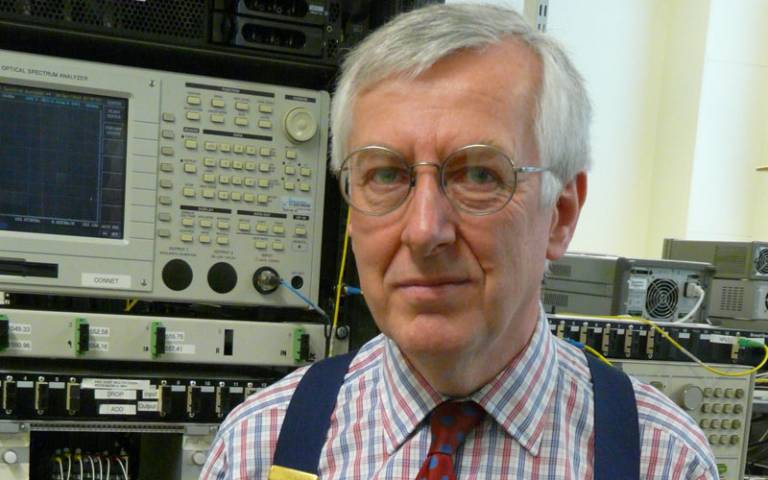UK Dark Fibre Communications Research Facility Funded by UK Research and Innovation- EPSRC
5 March 2019
£4.9 Million software defined optical network will enable researchers to create the communications technologies to power the future internet

UK Research and Innovation- Engineering and Physical Sciences Research Council (EPSRC) have today announced a £4.9 Million grant to fund a National Research Facility, the National Dark Fibre Facility (NDFF) to support UK researchers in creating the new communications networks required for the future internet. Following a competitive call for proposals, the 5 year contract for NDFF has been awarded to UCL as prime contractor for a consortium including the Universities of Bristol, Cambridge and Southampton. NDFF will provide access to a dedicated software defined dark fibre network using dedicated dual optical fibre connections between these universities, with onward connection to European and Worldwide research networks via Telehouse, London. These fibre links, comprising some 750 km of single mode fibre, together with control and monitoring systems, will be provided to NDFF through continued close collaboration with the Jisc-Joint Academic Network, Janet. Researchers in the UK will be able to access the new network, to be named Aurora 3, both directly by placing equipment at consortium sites and remotely using Layer 2 networking connections, such as the Jisc Netpath service.
The new service builds on previous work carried out by the consortium, which led to the creation of the (EPSRC) and Jisc funded National Dark Fibre Infrastructure Service (NDFIS). NDFIS was the world's first optical fibre research network to offer software defined transmission parameters, dynamic reconfiguration into multiple sub-networks with the ability to handle multiple transmission formats simultaneously.
As well as supporting research on the future core optical network, which underpins the internet, NDFF will also enable research with experimental metro networks, including a new small mesh network in the Cambridge area and interworking with Layer 2 through dark fibre connections to the first software defined network Exchange at Slough Virtus. NDFF will also support research on quantum communications in collaboration with the UK Quantum Technology Hub for Quantum Communications and on wireless backhaul networks for future Wireless Systems such as 5G+ and the internet of things.
NDFF Director, Professor Alwyn Seeds from UCL Electronic and Electrical Engineering said:
“We are delighted that UKRI-EPSRC have supported the creation of the new National Dark Fibre Facility. This will enable UK researchers to remain at the forefront of technology research for the future internet.
UK Photonics and UK electronics are large industries with annual revenues of £10 billion and £29 billion respectively. We will be working with leading UK companies to transfer technologies developed with the aid of NDFF into new products and services. The benefits to the UK economy will be correspondingly large."
NDFF Technical Director, Professor Dimitra Simeonidou from the University of Bristol said:
"The National Dark Fibre Facility will be a fundamental asset for driving Future Networks Research, maintaining the UK’s leadership in the field. NDFF is designed to carry a large number of parallel independent experiments, at the same time, and will facilitate inter- connectivity of academic and industrial facilities beyond the Dark Fibre footprint, through Jisc Layer 2 services with a national reach.
NDFF will enable University researchers and UK Industry to carry out collaborative research at scale to address future digital infrastructure challenges such as connectivity, IoT, data, cyber and quantum security, resilience, automation etc."
 Close
Close

